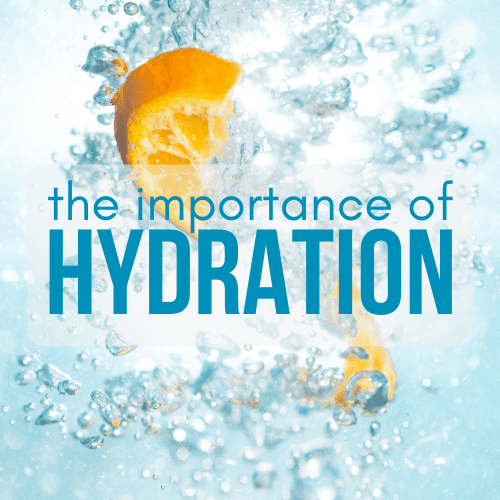From the Nurse’s Desk: Dehydration
Wednesday January 30, 2019

Dehydration is something that gets talked about a lot in the summer months, but it’s a problem all year round. In the winter, we may not feel as thirsty, so we don’t drink enough. Also, central heat creates a dry environment, meaning we need more fluids to make up for the dryness.
Dehydration is a term used to describe an excessive loss of water that disrupts the body’s normal functions. Dehydration takes place when more fluids are lost than taken in. It has become a common problem among seniors. It is important to watch your loved one for signs of dehydration.
Some causes of dehydration:
- Medications (example: Diuretics such as Lasix)
- Decreased thirst
- Forgetting to drink fluids
- Decreased kidney function (As we age, our kidney function decreases, and they can’t hold as much fluid.)
- Illness
Some symptoms of dehydration:
- Increase in confusion
- Delirium over and above typical dementia symptoms
- Dark, strong smelling urine
- Dry, papery skin
- Dry, cracked lips
- Urinary tract infection (which can also cause delirium)
- Headache
- Sunken eyes
- Constipation
- Lower than normal blood pressure
- Fast/weak/irregular pulse
- Loss of consciousness in severe cases
Dehydration is a serious (and unfortunately common) problem and can cause serious health issues. So how can we prevent our loved ones from getting dehydrated?
Pay attention to fluid consumption!
Pay attention to how much water your loved one is drinking. Keep a log if you need to.
Make drinking easier.
Some ideas: Easy-to-open tops, non-spill cups or water bottles, one-way straws.
Set reminders with technology.
Set up Reminders or alarms on your phone. Use something like an Ulla. Ulla is a water sensor you can strap around your drinking glass or water bottle. It glows to remind you to drink at regular intervals.
Get creative.
You don’t have to just provide plain tap water, and even if you do, you can make it more interesting by adding slices of citrus or cucumber. Trade water for a low-sugar sports drink. Popsicles are always a fun way to stay hydrated.
Offer food with high water content.
Broth-heavy soups, apples, oranges, berries, grapes, watermelon, cucumber, and cottage cheese all have high water content.
Keep an eye on caffeine intake.
Sodas, coffee, and other things containing caffeine are fine in moderation, but caffeine is a diuretic and may contribute to dehydration. Don’t count coffee or soda in your daily fluid intake.




